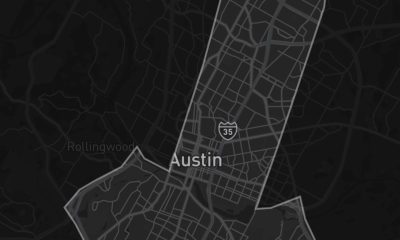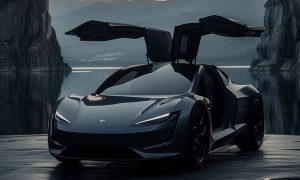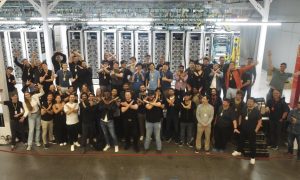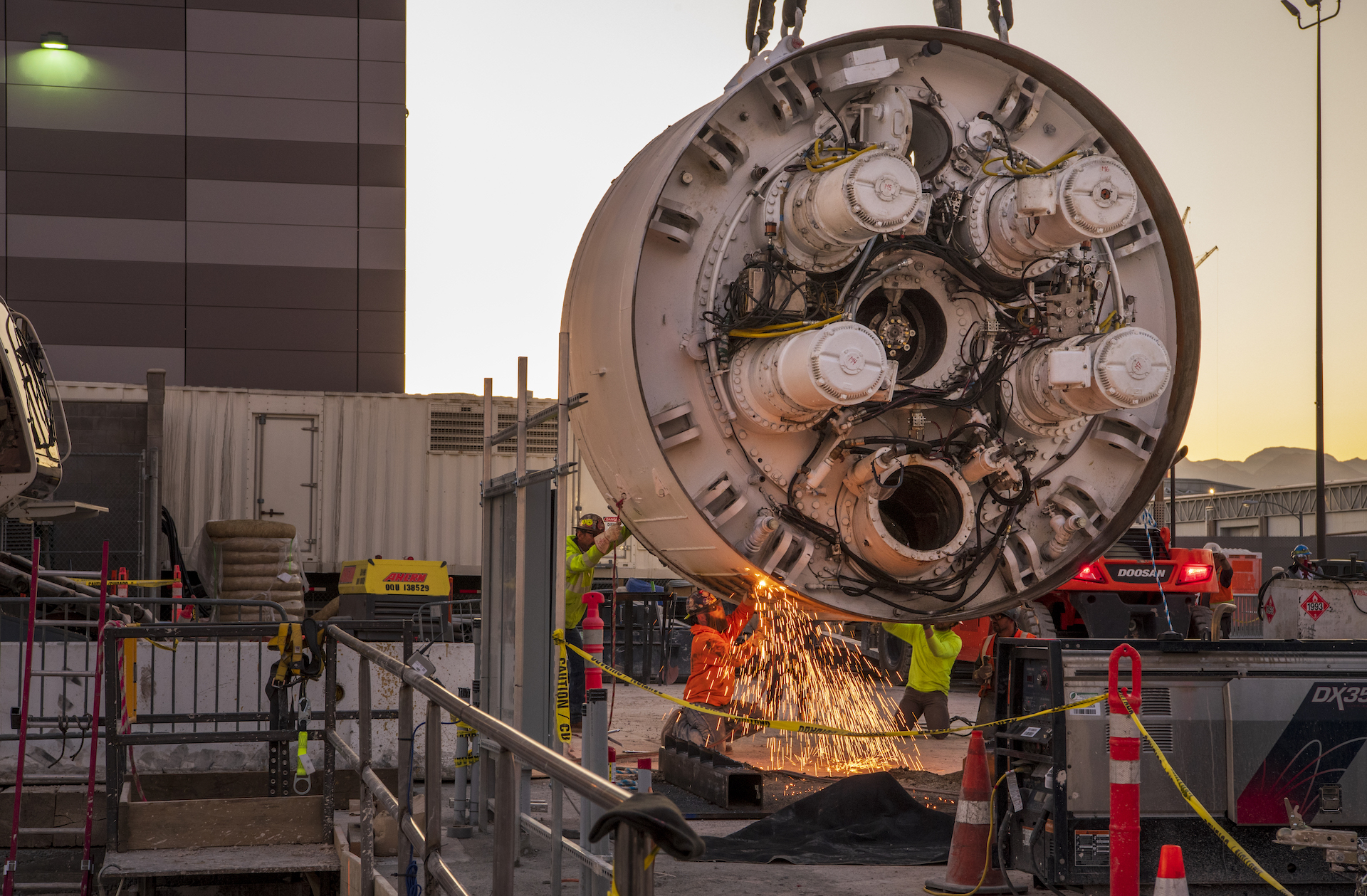

News
Elon Musk’s Boring Company gets stern dismissal from tunneling veteran: ‘Something like that doesn’t work’
Elon Musk’s companies have a pretty strong tendency to attract their own fair share of critics, including those in notable positions in their respective industries. This was the case with Tesla and its electric vehicles, and the same was true with SpaceX and its reusable orbital-class rockets. The Boring Company, another one of Elon Musk’s ventures, is now gathering its own skeptics as well, with Martin Herrenknecht, the founder of Herrenknecht AG, one of the world’s premier tunnel boring machine (TBM) makers, recently expressing his doubts about the tunneling startup.
German business publication Manager Magazin recently interviewed Herrenknecht. When asked about Elon Musk’s tunneling aspirations with The Boring Company, the Herrenknecht AG founder was dismissive, noting that he believes the Tesla and SpaceX CEO is overrated, at least when it comes to tunnel construction. The executive added that his company’s TBMs are far more advanced than the Boring Company’s tunneling machines today.
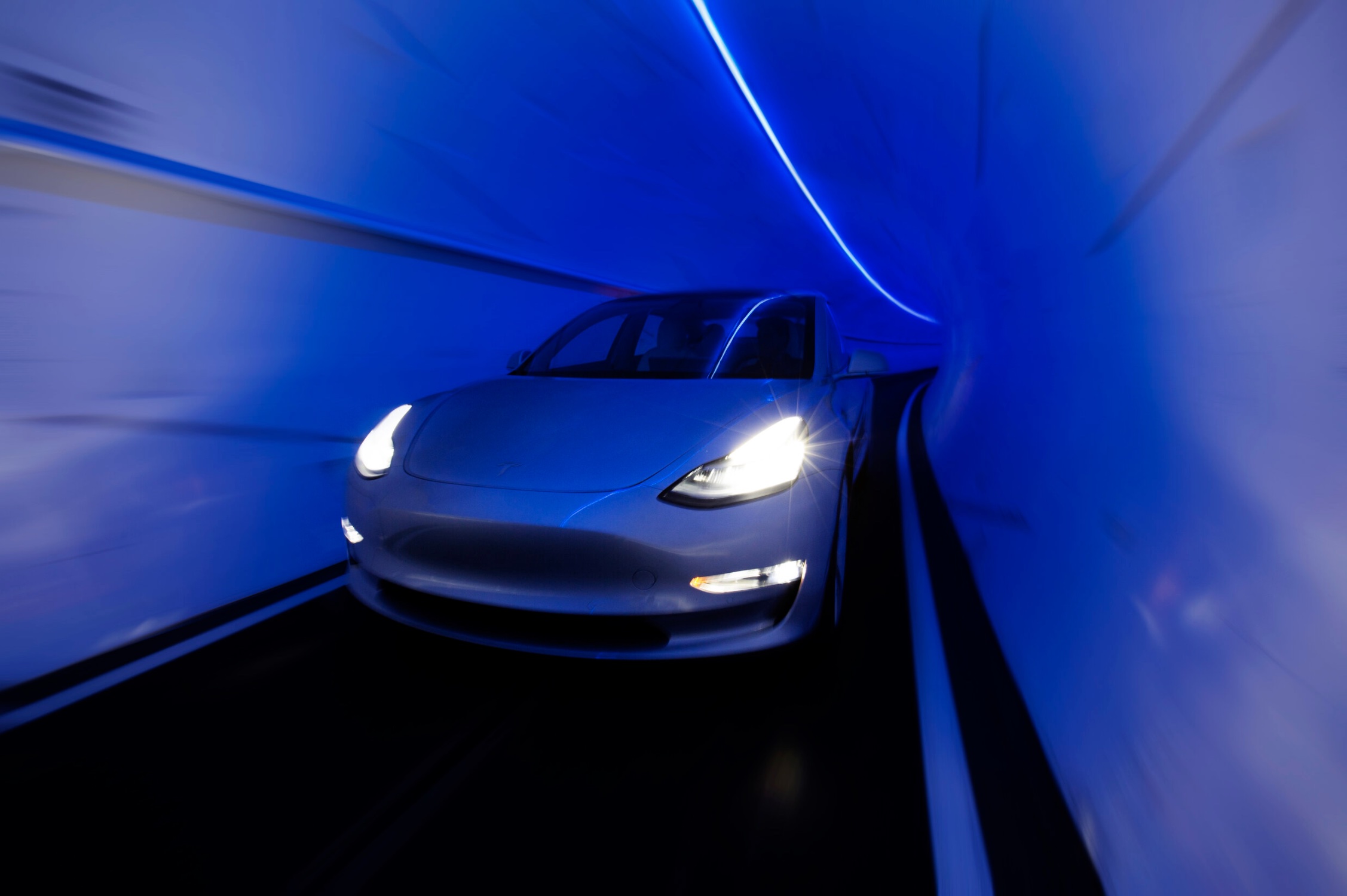
“For my industry, I see Musk above all as a skillful whisker. He claims that he can build tunnels faster and cheaper than others and is causing a stir. On his reference project in Las Vegas, Musk drilled 20 meters in one week. We can do the same route in one day,” he said. (Despite Herrenknecht’s statement, Teslarati has been informed that The Boring Company has already managed to dig 40 meters in a 24-hour period using its first machine, Godot.)
Explaining further, Herrenknecht noted that it would be very challenging for Elon Musk to become competent in the tunneling industry. The executive noted that he believes The Boring Company will not reach the same heights as Musk’s other ventures like Tesla and SpaceX in the next ten years or so due to the complexity of the tunneling segment. “I think the degree of difficulty and complexity in tunneling are higher,” Herrenknecht remarked.
Interestingly enough, the executive also shared a personal anecdote about Elon Musk himself. As per Herrenknecht, Musk actually approached Herrenknecht AG for the potential purchase of a tunnel boring machine for The Boring Company in the past. However, during the negotiations, Elon Musk reportedly exhibited “strange business behavior,” leaving the room for long periods and suggesting numerous ideas. Musk was also adamant in reducing the price of TBMs from $10 million to just $2 million.
“It was pretty chaotic because he left the room several times for a long time and kept coming up with different ideas… Something like that doesn’t work,” Herrenknecht said.
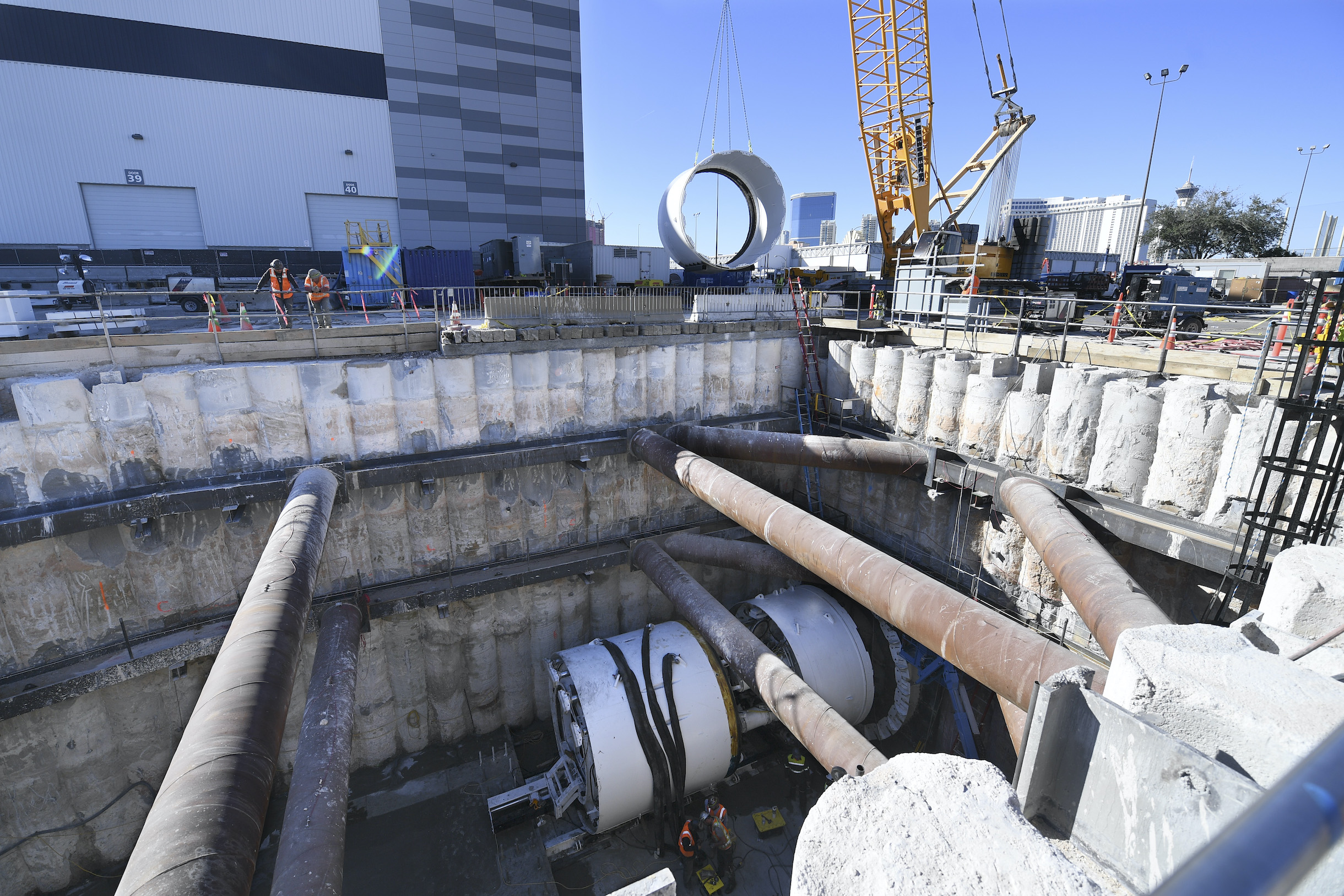
Needless to say, The Boring Company did not purchase a TBM from Herrenknecht AG. The tunneling startup did manage to purchase its tunneling machines from another company, the first of which was used to complete a test tunnel in Hawthorne, CA. Elon Musk has also announced that The Boring Company is working on developing an all-electric TBM called Prufrock, which has the potential to dig tunnels significantly faster than the industry’s best today.
Elon Musk’s ill-fated meeting with Herrenknecht AG echoes some elements of the Tesla CEO’s meeting with the Russians in 2001. Back then, Musk was aiming to purchase intercontinental ballistic missiles that could be used to launch some payloads to space. The discussions ultimately broke down because of the missiles’ cost, and on the trip back to the United States, Musk figured that building rockets would be feasible. SpaceX was founded the year later, and the rest is history.
It remains to be seen if The Boring Company would be the disruptor that Elon Musk plans it to be. That being said, skeptics of the tunneling startup today seem to be following the same patterns as Tesla and SpaceX’s critics, most of whom have been proven wrong over the years. If any, Herrenknecht’s references to the Tesla CEO’s aggressive cost-cutting demands and out-of-the-box ideas are classic Elon Musk. And just like critics before him, the executive reacted adversely to the CEO.
It would then be interesting to see if The Boring Company, at least in the coming years, could rise enough to challenge the titans of the TBM industry, just like its fellow Elon Musk-led companies Tesla and SpaceX. At least for now, history seems to favor Elon Musk and his bold companies, all of which are noted and respected for their unorthodox nature and aggressive strategies.
Don’t hesitate to contact us for news tips. Just send a message to tips@teslarati.com to give us a heads up.
News
Tesla launches in India with Model Y, showing pricing will be biggest challenge
Tesla finally got its Model Y launched in India, but it will surely come at a price for consumers.

Tesla has officially launched in India following years of delays, as it brought its Model Y to the market for the first time on Tuesday.
However, the launch showed that pricing is going to be its biggest challenge. The all-electric Model Y is priced significantly higher than in other major markets in which Tesla operates.
On Tuesday, Tesla’s Model Y went up for sale for 59,89,000 rupees for the Rear-Wheel Drive configuration, while the Long Range Rear-Wheel Drive was priced at 67,89,000.
This equates to $69,686 for the RWD and $78,994 for the Long Range RWD, a substantial markup compared to what these cars sell for in the United States.
🚨 Here’s the difference in price for the Tesla Model Y in the U.S. compared to India.
🚨 59,89,000 is $69,686
🚨 67,89,000 is $78,994 pic.twitter.com/7EUzyWLcED— TESLARATI (@Teslarati) July 15, 2025
Deliveries are currently scheduled for the third quarter, and it will be interesting to see how many units they can sell in the market at this price point.
The price includes tariffs and additional fees that are applied by the Indian government, which has aimed to work with foreign automakers to come to terms on lower duties that increase vehicle cost.
Tesla Model Y seen testing under wraps in India ahead of launch
There is a chance that these duties will be removed, which would create a more stable and affordable pricing model for Tesla in the future. President Trump and Indian Prime Minister Narendra Modi continue to iron out those details.
Maharashtra Chief Minister Devendra Fadnavis said to reporters outside the company’s new outlet in the region (via Reuters):
“In the future, we wish to see R&D and manufacturing done in India, and I am sure at an appropriate stage, Tesla will think about it.”
It appears to be eerily similar to the same “game of chicken” Tesla played with Indian government officials for the past few years. Tesla has always wanted to enter India, but was unable to do so due to these import duties.
India wanted Tesla to commit to building a Gigafactory in the country, but Tesla wanted to test demand first.
It seems this could be that demand test, and the duties are going to have a significant impact on what demand will actually be.
Elon Musk
Tesla ups Robotaxi fare price to another comical figure with service area expansion
Tesla upped its fare price for a Robotaxi ride from $4.20 to, you guessed it, $6.90.

Tesla has upped its fare price for the Robotaxi platform in Austin for the first time since its launch on June 22. The increase came on the same day that Tesla expanded its Service Area for the Robotaxi ride-hailing service, offering rides to a broader portion of the city.
The price is up from $4.20, a figure that many Tesla fans will find amusing, considering CEO Elon Musk has used that number, as well as ’69,’ as a light-hearted attempt at comedy over the past several years.
Musk confirmed yesterday that Tesla would up the price per ride from that $4.20 point to $6.90. Are we really surprised that is what the company decided on, as the expansion of the Service Area also took effect on Monday?
But the price is now a princely $6.90, as foretold in the prophecy 😂
— Elon Musk (@elonmusk) July 14, 2025
The Service Area expansion was also somewhat of a joke too, especially considering the shape of the new region where the driverless service can travel.
I wrote yesterday about how it might be funny, but in reality, it is more of a message to competitors that Tesla can expand in Austin wherever it wants at any time.
Tesla’s Robotaxi expansion wasn’t a joke, it was a warning to competitors
It was only a matter of time before the Robotaxi platform would subject riders to a higher, flat fee for a ride. This is primarily due to two reasons: the size of the access program is increasing, and, more importantly, the service area is expanding in size.
Tesla has already surpassed Waymo in Austin in terms of its service area, which is roughly five square miles larger. Waymo launched driverless rides to the public back in March, while Tesla’s just became available to a small group in June. Tesla has already expanded it, allowing new members to hail a ride from a driverless Model Y nearly every day.
The Robotaxi app is also becoming more robust as Tesla is adding new features with updates. It has already been updated on two occasions, with the most recent improvements being rolled out yesterday.
Tesla updates Robotaxi app with several big changes, including wider service area
News
Tesla Model Y and Model 3 dominate U.S. EV sales despite headwinds
Tesla’s two mainstream vehicles accounted for more than 40% of all EVs sold in the United States in Q2 2025.

Tesla’s Model Y and Model 3 remained the top-selling electric vehicles in the U.S. during Q2 2025, even as the broader EV market dipped 6.3% year-over-year.
The Model Y logged 86,120 units sold, followed by the Model 3 at 48,803. This means that Tesla’s two mainstream vehicles accounted for 43% of all EVs sold in the United States during the second quarter, as per data from Cox Automotive.
Tesla leads amid tax credit uncertainty and a tough first half
Tesla’s performance in Q2 is notable given a series of hurdles earlier in the year. The company temporarily paused Model Y deliveries in Q1 as it transitioned to the production of the new Model Y, and its retail presence was hit by protests and vandalism tied to political backlash against CEO Elon Musk. The fallout carried into Q2, yet Tesla’s two mass-market vehicles still outsold the next eight EVs combined.
Q2 marked just the third-ever YoY decline in quarterly EV sales, totaling 310,839 units. Electric vehicle sales, however, were still up 4.9% from Q1 and reached a record 607,089 units in the first half of 2025. Analysts also expect a surge in Q3 as buyers rush to qualify for federal EV tax credits before they expire on October 1, Cox Automotive noted in a post.
Legacy rivals gain ground, but Tesla holds its commanding lead
General Motors more than doubled its EV volume in the first half of 2025, selling over 78,000 units and boosting its EV market share to 12.9%. Chevrolet became the second-best-selling EV brand, pushing GM past Ford and Hyundai. Tesla, however, still retained a commanding 44.7% electric vehicle market share despite a 12% drop in in Q2 revenue, following a decline of almost 9% in Q1.
Incentives reached record highs in Q2, averaging 14.8% of transaction prices, roughly $8,500 per vehicle. As government support winds down, the used EV market is also gaining momentum, with over 100,000 used EVs sold in Q2.
Q2 2025 Kelley Blue Book EV Sales Report by Simon Alvarez on Scribd
-

 News3 days ago
News3 days agoTesla debuts hands-free Grok AI with update 2025.26: What you need to know
-

 Elon Musk1 week ago
Elon Musk1 week agoElon Musk confirms Grok 4 launch on July 9 with livestream event
-

 Elon Musk5 days ago
Elon Musk5 days agoxAI launches Grok 4 with new $300/month SuperGrok Heavy subscription
-

 News2 weeks ago
News2 weeks agoTesla Model 3 ranks as the safest new car in Europe for 2025, per Euro NCAP tests
-

 Elon Musk2 weeks ago
Elon Musk2 weeks agoxAI’s Memphis data center receives air permit despite community criticism
-

 News5 days ago
News5 days agoTesla begins Robotaxi certification push in Arizona: report
-

 Elon Musk2 weeks ago
Elon Musk2 weeks agoTesla reveals it is using AI to make factories more sustainable: here’s how
-

 Elon Musk2 weeks ago
Elon Musk2 weeks agoTesla scrambles after Musk sidekick exit, CEO takes over sales




